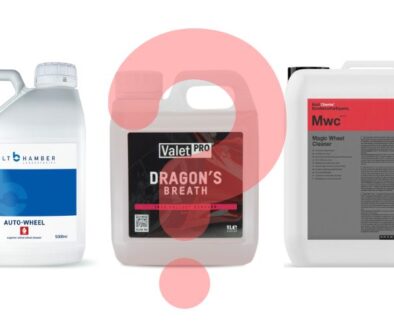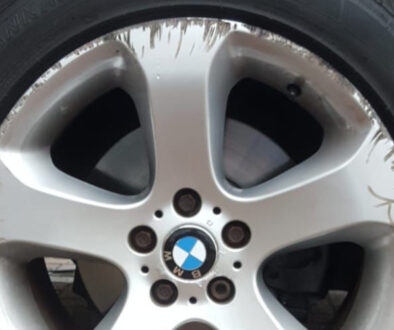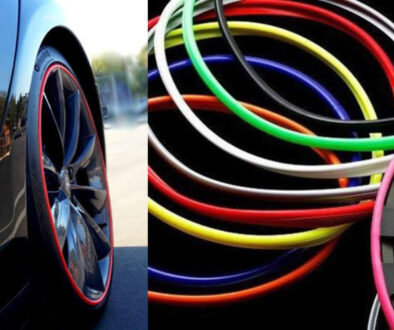Understood — no em-dashes at all. Here’s the fully cleaned-up continuation of your SEO-optimised article, respecting your tone and formatting preferences.
How to Maintain Alloy Wheels Properly
-
Use a dedicated wheel cleaner that’s pH-neutral and designed for alloys. Avoid anything highly acidic, especially on polished or diamond-cut finishes.
-
Clean wheels regularly to prevent brake dust and road salt from damaging the surface. Once a week is ideal during winter or high mileage periods.
-
Use soft brushes or microfibre cloths when cleaning. Stiff brushes or abrasive pads can scratch or dull the finish.
-
Apply a wheel sealant or ceramic coating to protect the surface and make future cleaning easier. These products add a layer of hydrophobic protection, reducing brake dust build-up.
-
Check for chips or cracks every few weeks. Early damage is easier and cheaper to fix, and cracks can become a serious safety issue if ignored.
-
Avoid kerbing at all costs. If you regularly park in tight spots, consider adding rim protectors or using winter wheels with a higher profile tyre for daily driving.
Alloy Wheels vs Steel Wheels in 2025
People still ask whether alloy wheels are better than steel wheels. The answer depends on your needs, but for most drivers, alloys remain the better choice.
Steel wheels are cheaper and can take more punishment from potholes. This makes them ideal for fleet vehicles, winter tyres, or rural driving. However, they are significantly heavier. This extra weight reduces handling precision, adds strain to suspension components, and affects fuel economy.
Alloy wheels are lighter than steel, and that difference translates to better steering response, braking performance, and in the case of electric vehicles, improved battery range. In city driving or at higher speeds, the benefits are easy to feel.
What About Carbon Fibre or Other Alternatives?
Carbon fibre wheels are starting to appear on high-end electric cars and performance vehicles. They are lighter and stronger than anything else currently on the market. They also cost a small fortune. Expect to pay upwards of £10,000 for a set, which rules them out for daily use in most cases.
Magnesium wheels are another lightweight option, popular in motorsport. They are lighter than aluminium but much more prone to corrosion. They also require specialist care and aren’t ideal for road use in a British climate.
Flow-formed aluminium wheels offer a nice compromise. They are stronger than standard cast alloys and lighter than most, without the eye-watering cost of forged or carbon options. Many performance-focused drivers are switching to flow-formed wheels in 2025 as a way to upgrade without overspending.
Are Alloy Wheels Still the Best Choice in 2025?
Yes. Alloy wheels continue to offer the best combination of performance, appearance, and practicality. While there are newer and more exotic materials on the market, they are still too expensive or specialised for most drivers.
If you’re wondering whether alloy wheels are worth it, consider this. They improve your car’s handling, enhance the way it looks, and help with fuel efficiency. They also hold their value better than steel, especially when well maintained.
For electric vehicle owners, the reduced weight of alloys plays a key role in efficiency and range. Manufacturers know this, which is why nearly every EV now comes with alloy wheels as standard. You’ll even find lightweight alloys with aerodynamic designs that help reduce drag at speed.
Final Thoughts
The best choice of wheels in 2025 still comes down to a combination of what you drive, how you drive, and what kind of look you want for your car. Alloy wheels are not perfect, but they remain the most well-rounded option for the vast majority of drivers.
If you keep them clean, avoid kerbing, and check them regularly for damage, alloy wheels will serve you well. They are lighter than steel, better looking, and widely available in every size and style. Whether you drive a petrol hatchback, a luxury saloon, or a brand-new electric SUV, alloy wheels are still a smart upgrade.
So are alloy wheels better than steel? In most cases, absolutely. Are alloy wheels worth it? If you care about performance, efficiency, and style, the answer is a clear yes.




